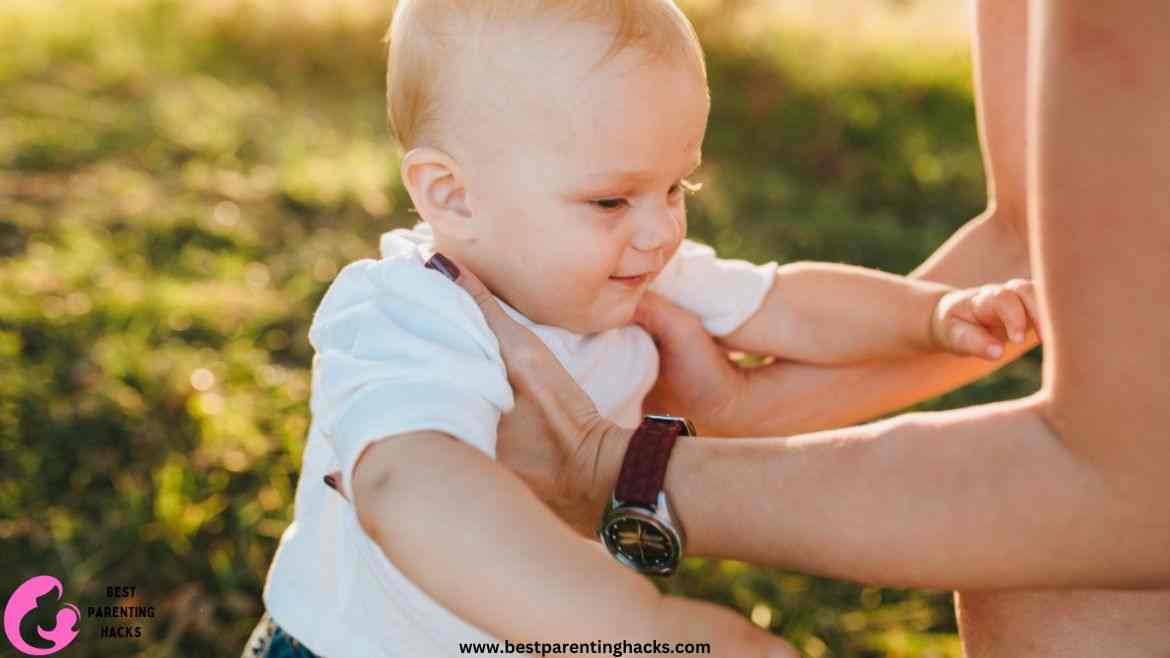Table of Contents
Every smile, every cry, and every movement your baby makes when you first hold them in your arms is a learning experience. However, between these moments of amazement, you may come upon a few surprises for which there was no parenting manual. The first time I lifted my child and heard a faint snap from their shoulder was one of those moments that surprised me. It brought me to a complete stop. Was it typical? Was there something I didn’t do right? My thoughts were filled with these inquiries while I inspected my infant closely, who appeared completely unaffected by the event.
I found out later that newborns frequently make the popping sound, so it’s typically nothing to be alarmed about. It’s one of those peculiarities of early growth that, although first concerning, usually turns out to be safe. The sound your kid makes in their joints or the soft tissues around them is frequently the result of regular physiological processes. In my quest to comprehend this phenomenon, I’ve learned how critical it is to acknowledge the bounds of typical growth even as we must be watchful for our children’s health. You’re not alone if you’ve ever gone through this with your child. Let’s investigate what is causing these popping sounds and whether there is any need to be concerned.
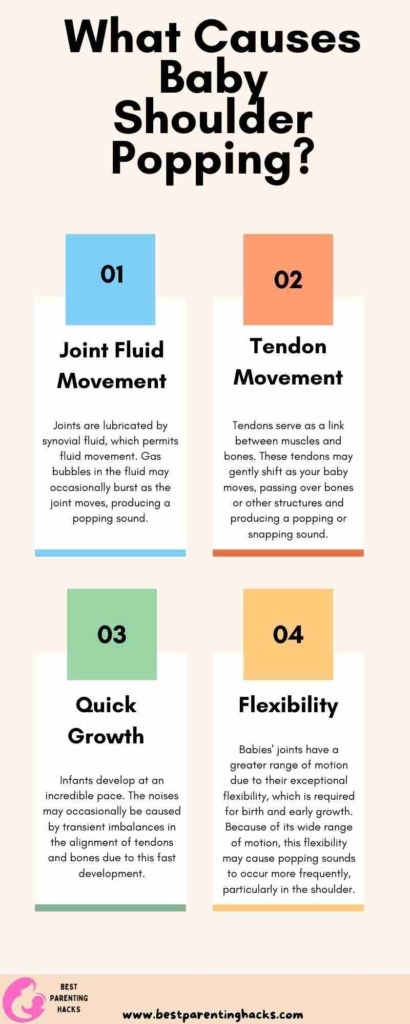
What Causes Baby Shoulder Popping?
Gaining insight into the workings of the popping sound may be both comforting and interesting. A baby’s cartilaginous skeleton is far softer and more flexible after birth than an adult’s bony skeleton. This adaptability is essential for both giving birth and the rapid development that takes place in the first few months and years of life. The cartilage progressively ossifies and becomes bone as their bodies enlarge. However, the joints and surrounding tissues may produce a range of noises throughout this transition, such as the popping or clicking you may hear when you pick up your infant.
1. Joint Fluid Movement: Joints are lubricated by synovial fluid, which permits fluid movement. Gas bubbles in the fluid may occasionally burst as the joint moves, producing a popping sound.
2. Tendon Movement: Tendons serve as a link between muscles and bones. These tendons may gently shift as your baby moves, passing over bones or other structures and producing a popping or snapping sound.
3. Quick Growth: Infants develop at an incredible pace. The noises may occasionally be caused by transient imbalances in the alignment of tendons and bones due to this fast development.
4. Flexibility: Babies’ joints have a greater range of motion due to their exceptional flexibility, which is required for birth and early growth. Because of its wide range of motion, this flexibility may cause popping sounds to occur more frequently, particularly in the shoulder.
Comprehending these variables aids in deciphering the noises produced by a baby’s shoulder popping. It serves as a reminder of the amazing bodily development and transformation in our infants. Although it’s normal to be concerned, understanding the mechanisms underlying these noises might help you relax.
You Might Also Like to Read: Why Does a Baby Scratch its Head When Tired?
Is Shoulder Popping a Sign of a Serious Condition?
There may indeed be a little terror when you hear your baby’s shoulder pop. I recall hurriedly looking for information and debating whether to phone my physician at that very moment. However, after doing some research and speaking with experts, I discovered that although it’s usually not an indication of anything dangerous, there are a few things parents should know to make sure their child is healthy and happy.
1. Frequency and Consistency: Generally, occasional popping that doesn’t show any symptoms of discomfort is not cause for alarm. Nonetheless, a more thorough examination is necessary if the popping is regular or persistent, particularly if it regularly occurs in the same joint. Frequent occurrences might be a sign of an underlying issue that requires care.
2. Pain or pain: Babies might exhibit a variety of signs of pain, such as fussiness or increased crying. If your infant appears uneasy, particularly following a popping sound, it may indicate that the popping is more than a normal developmental anomaly.
3. Restrictions in Range of Motion: Pay attention to whether your infant utilizes both arms equally or whether they appear to prefer one over the other. If there is a noticeable change in their range of motion, it may be an indication that the popping is impairing their comfort or movement.
4. Physical Deformities: Though uncommon, outward manifestations like redness, swelling, or any kind of deformity around the joint might raise suspicions. Popping noises in conjunction with these symptoms may indicate disorders such as congenital dislocation or other joint problems.
5. Family History: Hereditary connective tissue diseases, such as Ehlers-Danlos Syndrome (EDS), are associated with certain ailments. Tell your physician if any family members have a history of these problems since they may have an impact on the joint health of your child.
You can keep a closer eye on your baby’s health if you are aware of these concerns. Even though the popping sound by itself is frequently innocuous, being aware of these other indicators will help to guarantee that any possible problems are identified and resolved promptly.
You Might Also Like to Read: When Baby Initiates Peekaboo?
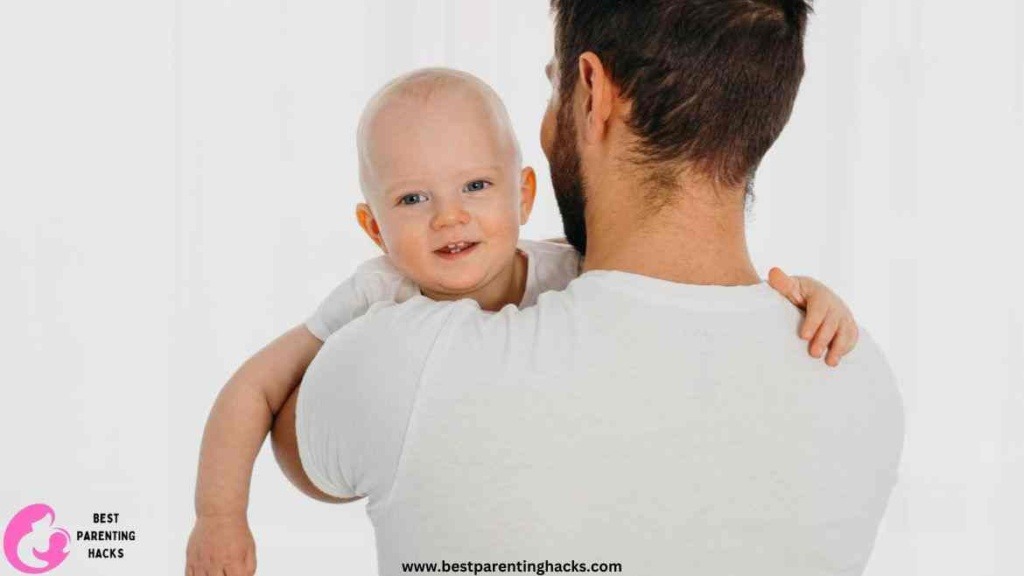
How to Safely Pick Up Your Baby
I am constantly reminded of the fine line that separates protecting my child’s health from comfort every time I lift them. Although picking up your infant may feel natural, there is a method that can assist reduce the possibility of discomfort or worsening the popping of the shoulder.
1. Always Support the Head and Neck: Babies’ muscles are not strong enough to support their heads and necks throughout the early months of life. To ensure a safe and pleasant raise, use one hand to hold the head and the other to support the bottom.
2. Gently and toward Your Body: As you elevate, keep your infant toward your chest. This gives patients a feeling of security and equally distributes their weight, which eases the pressure on their joints.
3. Refrain from Pulling on Arms or Hands: Although it may be alluring to lift your child by their arms or hands, doing so may place undue strain on their elbows and shoulders. Rather, remove them from behind their arms.
4. Pay Attention to Your Posture: Proper posture is essential for properly lifting your infant. Instead of bending at the waist, bend at the knees to prevent sudden movements that might frighten or hurt your infant.
5. Smooth Transitions: Make sure all your baby’s movements are gradual and smooth, whether you’re moving them out of their crib or repositioning them. Unexpected alterations might be shocking and could be the cause of the popping noise.
You may contribute to ensuring the safety and comfort of your infant by implementing these practices into your everyday routine. It all comes down to careful, patient handling that, with repetition, becomes instinctive.
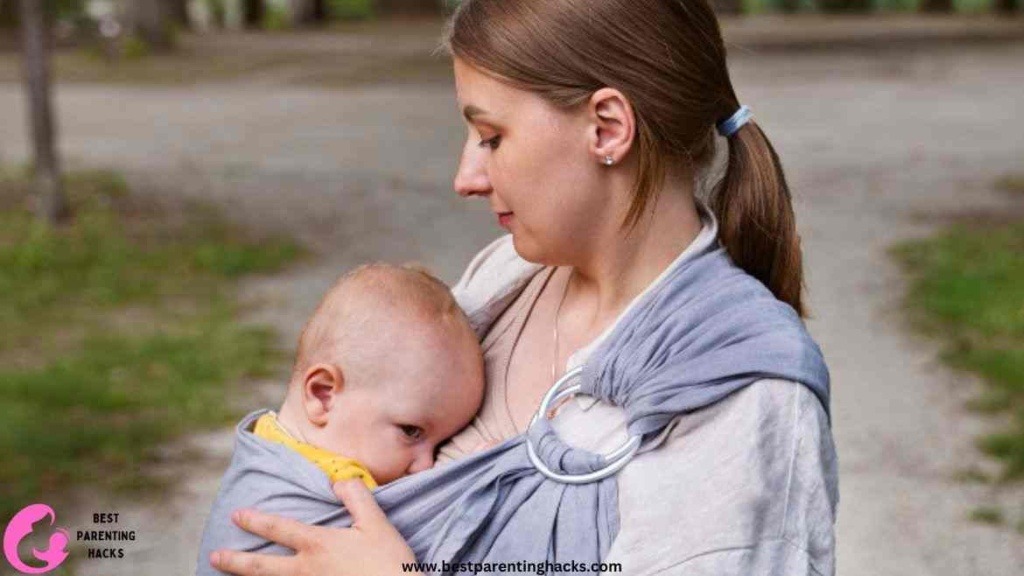
When to Consult a Doctor
Even though shoulder popping in infants is frequent, there are times when seeing a doctor is required. I recall the first time I chose to give our pediatrician a call; it was a gut instinct that something wasn’t quite right. When should you think about making that call?
1. Persistent or Increasing Frequency: You should get expert help if the shoulder popping doesn’t go away with time or if it happens more frequently. Recurring incidents could point to a medical condition that requires treatment.
2. Visible Discomfort or Pain: Babies express their discomfort by crying or fussing, even when they are unable to express it verbally. It’s time to contact a doctor if your infant appears distressed after hearing a popping sound, especially if it interferes with their ability to sleep or eat.
3. Limited Mobility or Avoidance of Movement: Take note if your baby’s range of motion noticeably decreases, or if they begin to avoid using the arm that makes the popping sound. This might indicate a more serious joint disease or just pain.
4. Associated Symptoms: Keep an eye out for any additional signs or symptoms, such as warmth, redness, or swelling around the shoulder joint, that go along with the popping. These might be indicators of an infection or inflammation that needs to be treated right away.
By taking early action and seeing a doctor when these symptoms appear, you can make sure that any possible problems are dealt with right away and maintain the health and happiness of your child.
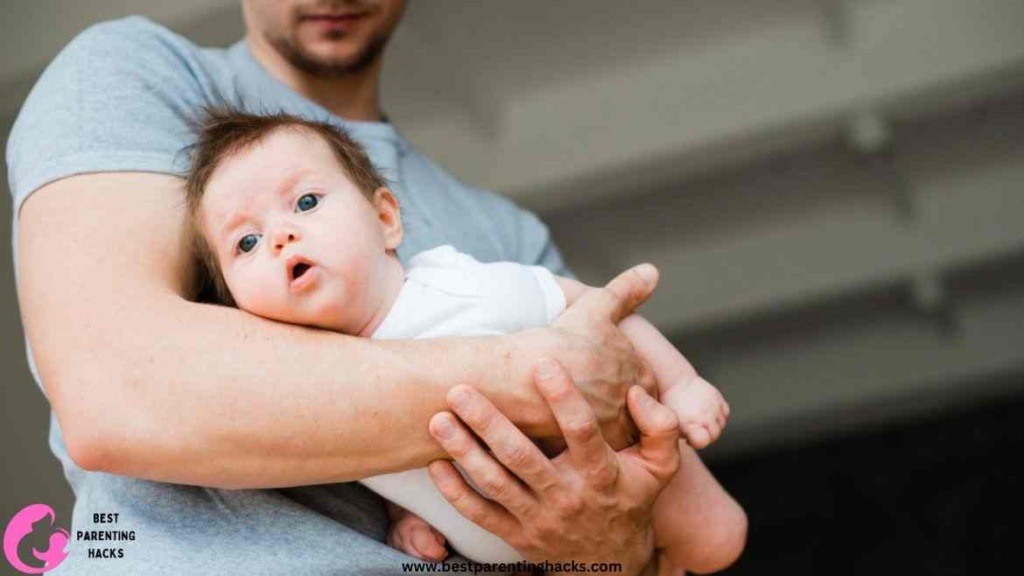
Parental Experiences and Advice
Early motherhood is a journey full of unknowns, and getting advice from someone who has been there before may be very comforting. Seeking guidance and encouragement from other parents was helpful when I was initially experiencing shoulder popping with my child. The following observations are based on the collective wisdom of parents:
1. Trust Your Instincts: As parents, we frequently possess a sixth instinct regarding the welfare of our kids. Never be afraid to ask for help or a second opinion if something seems strange, even if it’s simply a popping sound.
2. Customary Pediatric Examinations: It’s essential to get regular checkups to track your baby’s development. Make the most of your sessions to talk about any issues, no matter how little.
3. Educate Yourself: You might feel more at ease if you know the fundamentals of a baby’s anatomy and typical developmental milestones. But keep in mind that every infant is different and that variances are common.
4. Support Networks: Reaching out to other parents via a local parenting group or an online forum may offer both practical guidance based on first-hand experiences and emotional support.
5. Record and Observe: Your doctor can benefit from knowing when the popping happens as well as any concomitant symptoms or behaviors, which can assist in identifying any possible problems.
Parents can use a well-built structure that enables them to confidently solve the predicaments of early childhood development by sharing thoughts and tips.
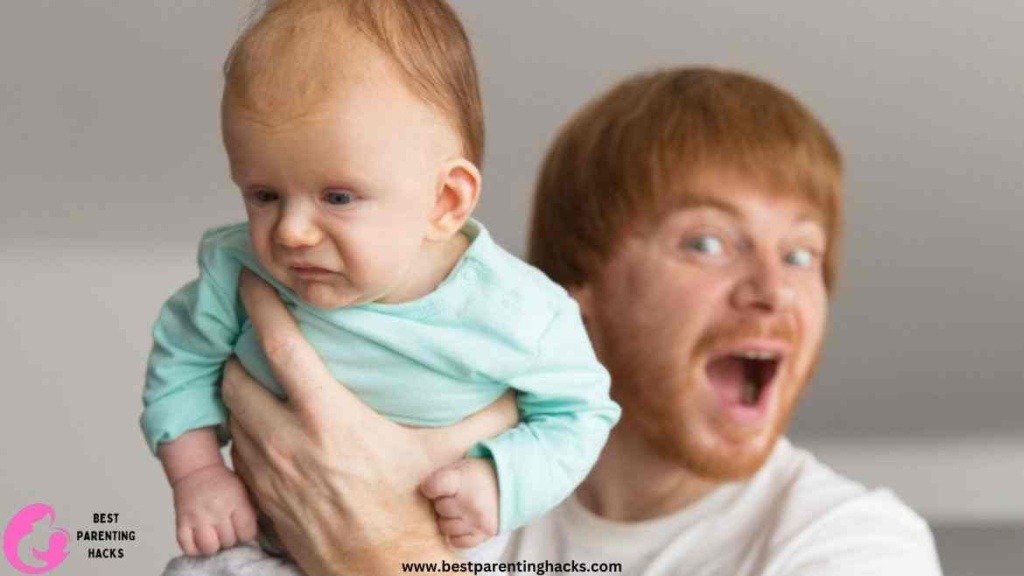
Conclusion
Although it might be alarming to hear your baby’s shoulder snap, this is frequently a normal developmental phase. The parenting community’s collective wisdom and my personal experiences have taught me the value of paying attention to, comprehending, and addressing these tiny peculiarities of early development. Remember, even though most shoulder-popping incidents are not harmful, your baby’s health and well-being need to be aware of the warning indications that point to the need for medical attention. Raising children is a process of growth as well as discovery both for them and us. We all are there for one another in moments of confusion. As we continue to share our experiences and ideas, we should also be grateful for the little wins.
FAQ
Is popping baby shoulders common?
Indeed, it’s rather typical and typically not a reason for alarm. Their joints’ innate flexibility and growth are frequently to blame.
Can popping your shoulders cause long-term problems?
It usually doesn’t result in long-term problems. Nonetheless, a pediatrician should be seen if popping occurs frequently and is accompanied by pain or discomfort.
How can I stop the shoulder of my infant from popping?
Although it’s not always preventable, you may reduce the risk by holding your infant gently and without tugging on their arms.
If there is sobbing along with the popping sound, what does that mean?
It is recommended to contact a physician to rule out any underlying concerns if your infant appears to be in pain or discomfort after hearing a popping sound.
Will the shoulder popping in my baby grow out?
Yes, shoulder popping usually becomes less often as your kid becomes bigger and stronger in their muscles and joints.
To avoid my baby’s shoulders popping, should I limit their movements?
No, a baby’s freedom of movement is crucial for their healthy growth. Just make sure their surroundings are secure and their mobility is assisted.
Is physical therapy helpful for my infant if they pop their shoulders a lot?
Physical therapy, if recommended by your physician, can help strengthen the muscles surrounding the joints and perhaps lessen the frequency of popping.

